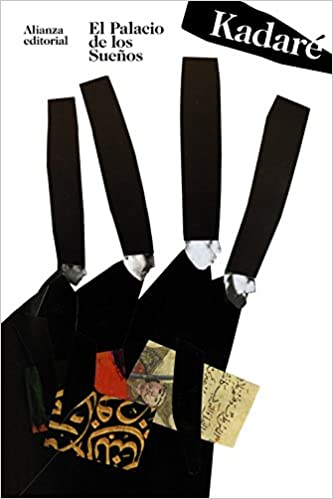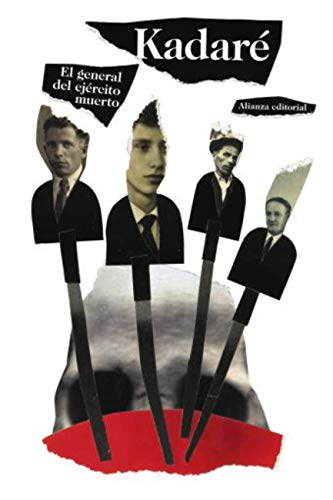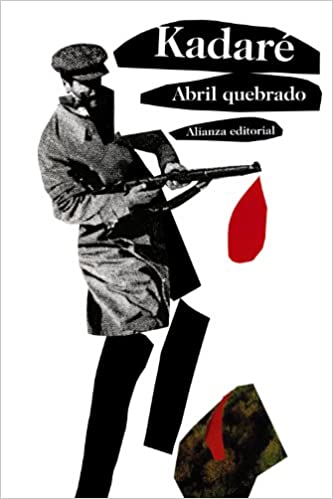From the small Albania the great figure in the literary, sociological and even philosophical, of Ismail Kadare. The homeland of this author, shaken throughout the XNUMXth century by the European ups and downs in the social, the political and the military, has ended up leading to a democratic State whose population is finally scattered between the borders of the State itself and beyond, forming extensive communities in Kosovo, or other small pockets in neighboring countries.
Faced with the unique Albanian historical transition, Ismail Kadaré adopted the role of the necessary critic, of the discordant voice capable of opposing power. His creative and humanistic will oriented towards the novel ends up adapting on many occasions to the necessary commitment of those who have experienced all kinds of abuses of power.
The XNUMXth century pointed in many cases to dystopian horizons that can be considered more or less realized today and that George Orwell coated (previously Kadaré) with sociopolitical overtones in 1984. The point is that Ismail Kadaré was and is one of those who provides the counterpoint, of those who writes to restore empathy and the critical notion perfectly exemplified in a fictional narrative where it is materialized the magic of approaching the character without our own prejudices.
Ismail Kadaré knows that in order to get closer to crude realities, well known to him, there is nothing better than inviting the reader to occupy another skin, to see with different eyes, to string together a story from which to contemplate thesis and antithesis to finally discover a synthesis narrative that complements any ideology from the powerful imagination, that which is not accountable to absolute truths and precepts.
Top 3 recommended books by Ismail Kadaré
The palace of dreams
My regard for the allegorical is known. You can not fail to fix this novel as the best of the author. If before he spoke of the author's interest in revealing the trompe l'oeils of authoritarian political systems, presented in the social sphere as idyllic systems, this book is the equivalent of the most famous dystopias of other authors who are quite different in their genre but similar in their intention.
I am referring to the aforementioned George Orwell, but also to bradbury with Fahrenheit 451 or a Huxley in Brave New World. Because yes, there is a lot of political science fiction in this novel in which the kingdom of death rules over the dreams of the citizens.
Mark-Alem is the protagonist of this dystopia in which the State collects written reports on the dreams harbored every day.
Truly disturbing allegory that ends up composing a portrait of Albanian society in particular, but that resembles any other system of dictatorial government in form or substance.
The dead army general
From very concrete events in recent Albanian history, we enter a thoughtful novel. The setting connects with that need for the story of an Albanian like the author, determined to show the essence of his homeland.
But in addition to learning about this unique country, in the end it ends up describing a very human panorama compared to any other scenario. In search of the heroes of the Second World War, deceased and abandoned somewhere in the Albanian Balkans.
In a plot that unfolds over a long period of time, Ismail Kadaré transfers impressions of that humanity given to doom and survival.
At times we discover a stark humor and in others, in that magical total composition, we get excited or enervated by the facts.
The excuse of finding Colonel Z serves to end up drawing a first novel charged with necessity, with the desire to give voice to fascinating intra-stories amid tragedy.]
Broken April
The adaptation of some norms or laws such as the Kanun in areas such as the Albanian mountain ranges represent an authentic journey to ancient uses and customs that are impressive.
To face a narrative as intense as this one, which introduces a lay reader to a new world within our world, Ismail branched out two stories that provide different notions about the plot's own happening.
Gjorg Berisha seeks his due blood revenge. He is protected by one of those old ritual debts that would seem inconceivable in our days, a kind of medieval reminiscence. In the second branch we enjoy an epic interpretation of what happened with Gjorg Berisha.
While traveling through that particular corner of the world, the writer Besian Vorpsi deals with explaining reasons, linking what happened with values that seem to justify revenge and blood based on values sacred to the Kanun ...



